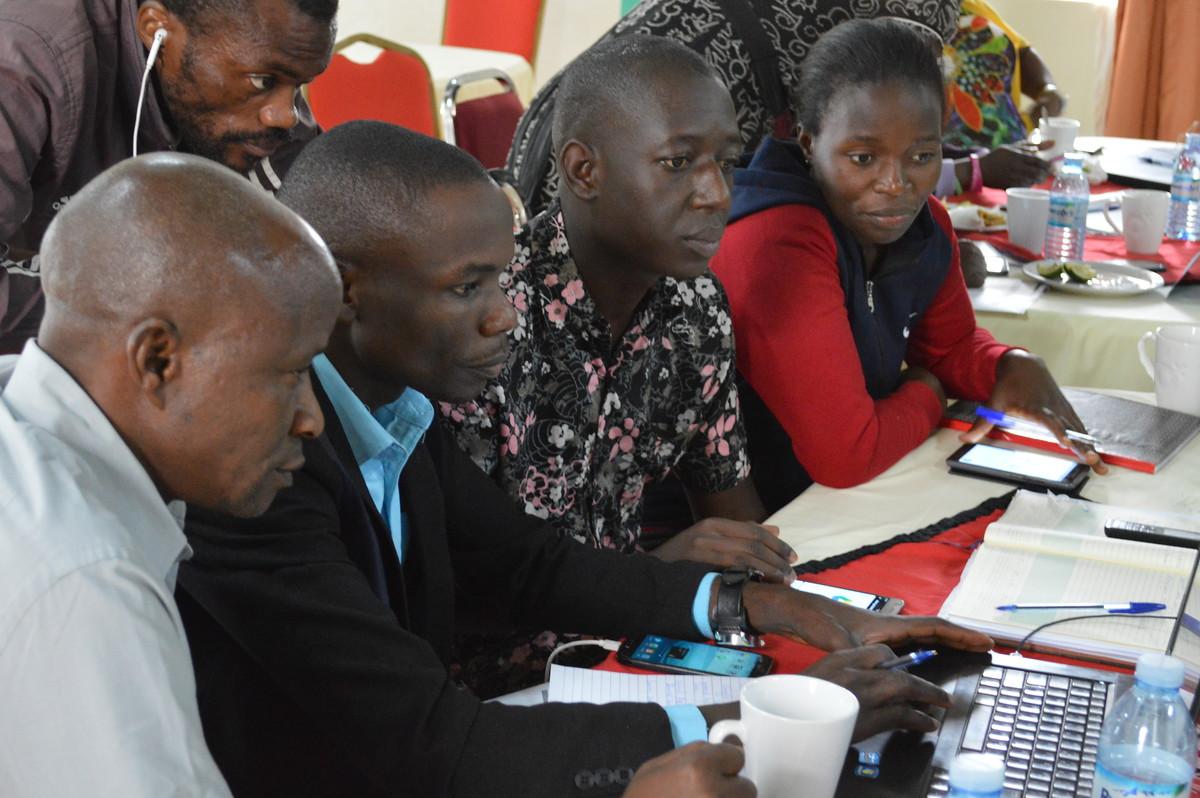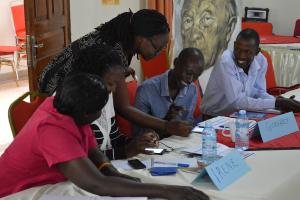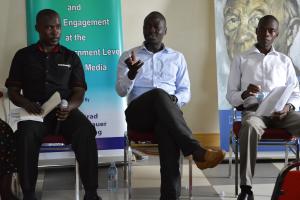Event reports
Local governments enjoy the advantage of being at the source of information about their districts, by having close contact to the people. This has vital effects on improving service delivery and setting the development agenda. On the other hand, a well-coordinated communication between local governments and society enhances good governance and holds authorities accountable for their actions. Hence, social media can serve as a strong tool of communication and enhance citizens´ access to information if used effectively and reasonable.
However, local governments in Uganda often lack the ability to routinely provide good quality information to their electorate, which is a fundamental component of democracy and highly demanded by society.
Therefore, the workshop was specifically designed to train local authorities on how to use social media platforms to improve civic engagement and good governance on a district level.
After a short introduction about social media concepts, the training kicked off with its first session about Google usage and micro blogging, facilitated by the trainer Sylvia Nankya. Step by step participants learned how to filter information sustainably, to use Google as a significant search engine within their work. Further sessions focused on big media platforms like Twitter, Facebook and LinkedIn which are on the upgrade of Uganda´s social media scene. People in urban as well as rural areas are realizing the importance of such media platforms, but have not yet fully embraced it as a new form of communication to their governments, but rather on private purpose. However, these platforms can serve as an excellent forum for discussion, enhancing civic engagement and understanding of democracy and good governance.
During the workshops, participants were guided through theoretical concepts linked with practical activities which allowed them to first understand and then practice the new skills on the ground. In the meantime, creating synergies between social media and local governments for effective communication was overarching. The target group of local government leaders systematically learned how the media works and how to use it effectively to assure society permanent access to relevant information.
At the end, CEMCOD initiated a public dialogue bringing together 60 key stakeholders from local governments, as a solid conclusion of the 3-day training. Selected guest speakers discussed about the opportunities and risks of the growing social media scene and its impact on society. As much as social media platforms bear great chances for improved communication, they also come with certain drawbacks, creating unpredictable challenges. A plenary question about how to deal with and how to avoid cyber bullying as one of the negative effects of technology use caught much attention during the dialogue. “Whatever happens online is a mirror of what happens in the real world” as Donnas Ojok, project manager at KAS, opined. “Thus, social media can also act as a strong tool to promote constrictive activism.” The dialogue merged into a discussion about creating quality content to promote constructive social media engagement. Participants further highlighted the need for society to receive good-quality information by local governments to feel more engaged and involved in political discourses.






